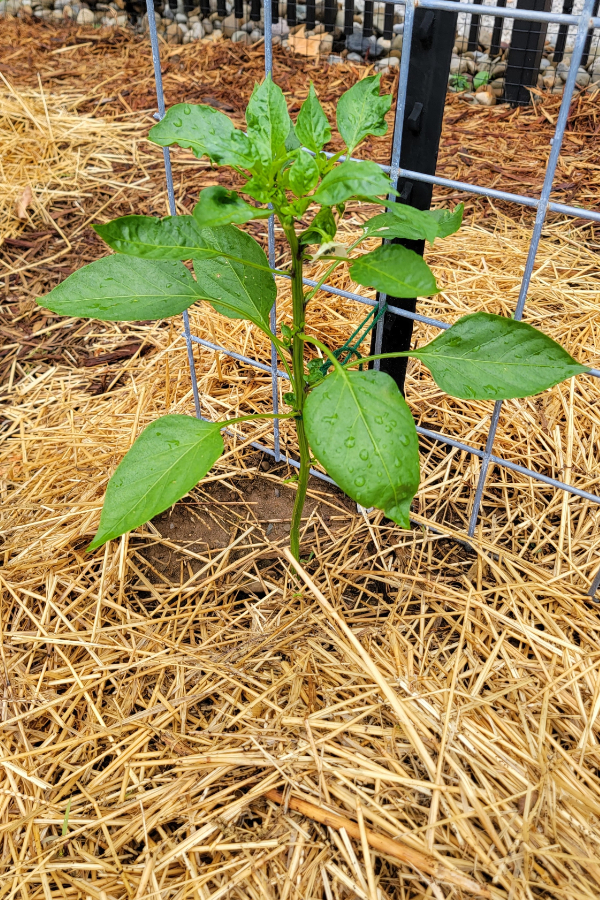Organic Vs. Synthetic Fertilizers: Which Is Best for Supporting Healthy Pepper Plants?
In the world of supporting healthy pepper plants, the choice in between artificial and organic fertilizers stands as a critical choice with far-reaching effects. While both alternatives aim to provide vital nutrients to sustain plant development, the subtleties of their effect on the soil, plant health and wellness, and the setting stimulate a dispute that echoes throughout the gardening neighborhood. Recognizing the distinctive benefits and possible challenges of each plant food kind is vital for pepper growers seeking to optimize their yields while keeping a sustainable and eco-conscious technique.
Advantages of Organic Fertilizers
Organic plant foods offer a sustainable and environmentally-friendly method to beneficial pepper plants, providing essential nutrients without using artificial chemicals. These natural plant foods are stemmed from organic sources such as garden compost, manure, bone dish, and algae, advertising dirt health and wellness and biodiversity. Unlike synthetic plant foods, natural choices release nutrients slowly, ensuring a balanced and consistent supply for pepper plants to thrive.
One significant advantage of organic plant foods is their capability to boost dirt structure and water retention. By improving soil health, natural fertilizers advertise valuable microbial task, which helps in nutrient uptake by pepper plants. Furthermore, natural plant foods lower the risk of chemical run-off, shielding water resources from air pollution and protecting the environment.
Furthermore, natural plant foods add to long-term dirt fertility by promoting the development of beneficial dirt microorganisms. These organisms aid break down raw material, releasing nutrients in a form that is easily available to pepper plants. best fertilizers for peppers. By promoting a healthy soil community, natural plant foods support lasting pepper farming techniques that benefit both plants and the environment
Drawbacks of Artificial Fertilizers
Synthetic fertilizers, in contrast to their organic counterparts, pose various disadvantages when used to nourish pepper plants, affecting both plant health and ecological sustainability. One significant drawback of artificial plant foods is their propensity to seep nutrients from the dirt swiftly.
Moreover, the overuse of artificial plant foods can add to water air pollution. Excess fertilizers not absorbed by plants can wash away into water bodies, leading to eutrophication, where algae flowers deplete oxygen levels in the water, damaging aquatic life. In addition, artificial plant foods are commonly obtained from non-renewable resources, such as nonrenewable fuel sources, adding to carbon emissions and ecological degradation throughout their manufacturing.
Nutrient Absorption Comparison
When contrasting natural and artificial plant foods in terms of nutrient absorption, organic fertilizers have the benefit of providing a more balanced and slow-release source of nutrients. Organic plant foods consist of a variety of macro and micronutrients that are not only useful for the plants yet additionally advertise healthy and balanced dirt microbial task, which assists in nutrient uptake.
In addition, organic plant foods boost soil framework and water retention capacity, enabling pepper plants to gain access to nutrients extra successfully. This improved dirt high quality facilitates root development, enabling better nutrient absorption. Synthetic fertilizers, although originally improving plant development as a result of their high nutrient concentrations, might hinder long-term nutrient absorption by degrading dirt wellness in time.
Ecological Influence Factors To Consider

On the other hand, synthetic fertilizers, although commonly even more focused and right away available to plants, can have harmful effects on the environment if not applied correctly look these up (best fertilizers for peppers). Their manufacturing requires high energy inputs, leading to greenhouse gas exhausts and adding to environment change. The overflow of excess synthetic fertilizers can contaminate water sources, leading to eutrophication and damaging aquatic communities.
Finest Fertilizer Practices for Peppers
When feeding pepper plants, optimizing nutrient uptake and lessening environmental impact are essential factors to consider. To achieve this, it is necessary to comply with finest fertilizer methods customized to the details needs of pepper plants. One important see post practice is to perform a soil test prior to using any kind of plant foods. This examination can identify the pH degree of the dirt and determine any nutrient shortages, assisting you in selecting the most suitable fertilizer formula.
One more essential technique is to feed pepper plants at the correct time. Commonly, peppers gain from getting fertilizer at growing and afterwards once again when they begin to flower. Over-fertilizing can bring about vitamins and mineral inequalities and harm the plants, so it is crucial to follow recommended application prices.
Furthermore, choosing a well balanced plant food with an NPK proportion that matches pepper plants' requirements is essential. Ultimately, incorporating synthetic and organic fertilizers deliberately can help nurture healthy and balanced pepper plants while lessening ecological effect.
Conclusion

Organic plant foods provide a sustainable and environmentally-friendly approach to nourishing pepper plants, giving necessary nutrients without the usage of synthetic chemicals. Unlike synthetic fertilizers, organic options release nutrients slowly, guaranteeing a balanced and consistent supply for pepper plants to prosper.
Synthetic fertilizers, in comparison to their organic counterparts, pose different drawbacks when browse around this web-site used to nourish pepper plants, affecting both plant health and wellness and environmental sustainability. When contrasting organic and synthetic fertilizers in terms of nutrient absorption, natural plant foods have the advantage of providing a more balanced and slow-release resource of nutrients.Moreover, organic plant foods enhance soil framework and water retention ability, permitting pepper plants to accessibility nutrients extra efficiently.